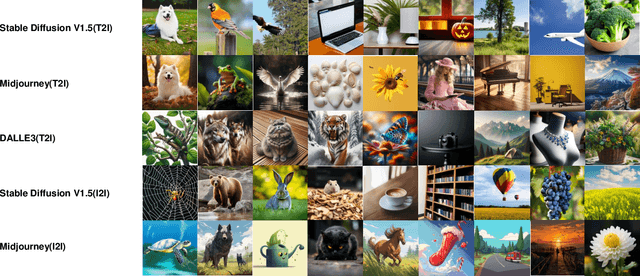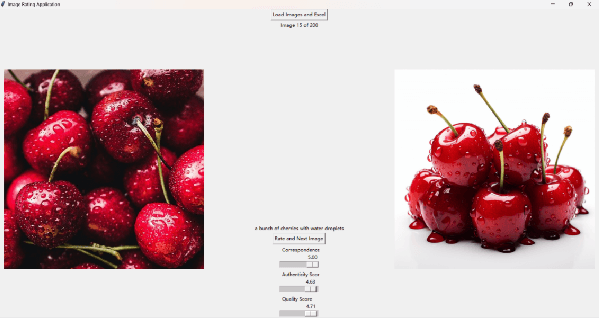PKU-AIGIQA-4K: A Perceptual Quality Assessment Database for Both Text-to-Image and Image-to-Image AI-Generated Images
Paper and Code
Apr 29, 2024



In recent years, image generation technology has rapidly advanced, resulting in the creation of a vast array of AI-generated images (AIGIs). However, the quality of these AIGIs is highly inconsistent, with low-quality AIGIs severely impairing the visual experience of users. Due to the widespread application of AIGIs, the AI-generated image quality assessment (AIGIQA), aimed at evaluating the quality of AIGIs from the perspective of human perception, has garnered increasing interest among scholars. Nonetheless, current research has not yet fully explored this field. We have observed that existing databases are limited to images generated from single scenario settings. Databases such as AGIQA-1K, AGIQA-3K, and AIGCIQA2023, for example, only include images generated by text-to-image generative models. This oversight highlights a critical gap in the current research landscape, underscoring the need for dedicated databases catering to image-to-image scenarios, as well as more comprehensive databases that encompass a broader range of AI-generated image scenarios. Addressing these issues, we have established a large scale perceptual quality assessment database for both text-to-image and image-to-image AIGIs, named PKU-AIGIQA-4K. We then conduct a well-organized subjective experiment to collect quality labels for AIGIs and perform a comprehensive analysis of the PKU-AIGIQA-4K database. Regarding the use of image prompts during the training process, we propose three image quality assessment (IQA) methods based on pre-trained models that include a no-reference method NR-AIGCIQA, a full-reference method FR-AIGCIQA, and a partial-reference method PR-AIGCIQA. Finally, leveraging the PKU-AIGIQA-4K database, we conduct extensive benchmark experiments and compare the performance of the proposed methods and the current IQA methods.
 Add to Chrome
Add to Chrome Add to Firefox
Add to Firefox Add to Edge
Add to Edge